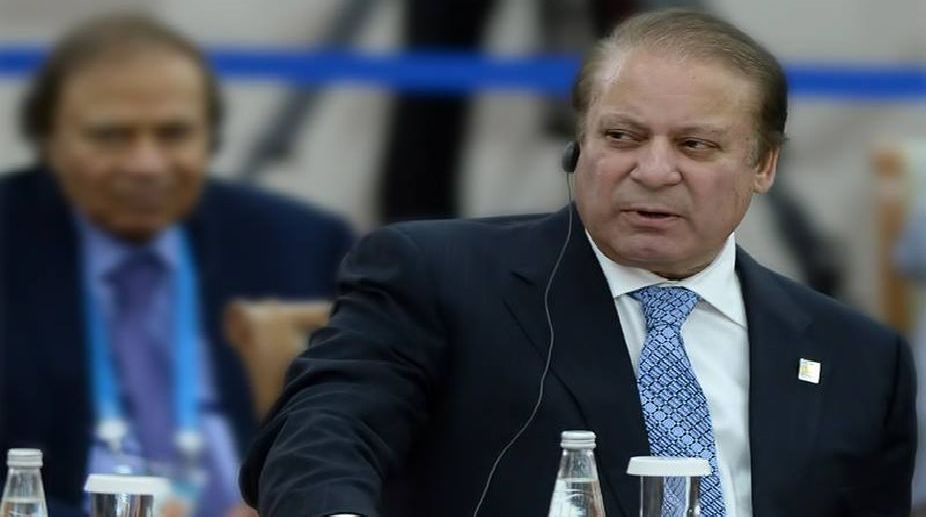Imran Khan shares mental health journey
Imran Khan discusses his ongoing mental health journey, emphasizing the importance of prioritizing wellness and seeking professional support.

Nawaz Sharif (Photo: Facebook)
Mossack Fonseca is a Panamanian law firm that helps clients hide their wealth using offshore bank accounts and shell companies. Eleven million documents have been leaked from this law firm. Among the named clients were Pakistan Prime Minister Nawaz Sharif's family members.
As owners of a range of companies from steel to sugar mills, the Sharifs are among Pakistan's richest families, and have often been accused of corruption and money laundering.
The leak of the Panama papers has added fuel to the fire. Three of PM Nawaz Sharif's children have been named – Maryam, his daughter and his potential successor; and Hasan and Hussain, his sons, whose leaked records show that they own London real estate through offshore companies administrated by the Panamanian firm.
Advertisement
Holding assets overseas is not illegal in Pakistan, but the non- declaration of these assets has raised eyebrows: Journalists and members of the public view the undeclared assets as a ploy by the Sharif family to evade taxes or launder money.
Public demonstrations arose condemning Sharif and his family. All such demonstrations came to a halt after hundreds of people were arrested under the assembly law, a provision known as Section 144 that was introduced during the colonial period. Human rights groups have disputed Section 144, claiming that it grossly violates freedom of expression. This claim received support in a statement by Amnesty International: "Pakistan's constitution guarantees people the rights to freedom of assembly, expression and movement. The authorities should immediately and unconditionally release all the people arrested solely for exercising their rights and allow them to protest peacefully."
There has been no concrete and reliable evidence that could prove the Sharifs' innocence. The one thing that they set their foot down is on the fact that they have done nothing wrong. They have denied all the charges that have been brought against them. Official investigations of the evidence seemed to prove the family's guilt. Maryam, Sharif's daughter, tried to falsify the documents that she handed to the investigators to hide the fact that they were owners of particular London apartments.
The font that she had used to manipulate the documents in her favor was Calibri, a font that came to public use after the documents had been drafted. Moreover, the family declared to the Supreme Court that their London properties were bought through investments in companies owned by the Qatari ruling family.
The most recent defense offered by the Sharif family brought to the Supreme Court's notice is that they were targeted for political aims. Imran Khan, the leader of Pakistan's political opposition, issued a swift call for action by stating that the country's accountability watchdog, its tax authorities and its election commission must take action.
The sudden support for the PM and his government in parts of Punjab and Sindh provinces was seen by the public as an attempt to whip up public support in case of a ruling that was unfavorable to Nawaz Sharif by the Supreme Court. Nawaz Sharif's son Hussain denied having been a part of any illegal activity: "Those apartments are ours and those offshore companies are also ours.
There is nothing wrong with them and I have never concealed it, nor do I need to do that." It is legal, according to British laws and laws of other countries, to avoid unnecessary tax through offshore companies. Imran Khan's call for the National Accountability Bureau to investigate was met with a confident response of innocence. Hussain announced that he would present himself to any judicial or investigative authority in Pakistan.
Hussain also called on Imran Khan to prove that Nawaz Sharif had not declared his assets and stated that if he could prove it, the family would accept wrong-doing and serve the punishment for it. To add to the current situation in Pakistan with the leak of the Panama papers, Pakistan's relation with India has yet again kicked up a storm.
Last month Pakistani military killed a number of Indian soldiers during a crossborder revenge attack in Kashmir. This attack was in response to Indian military opening fire and killing two Pakistani civilians. With India being in possession of 120 warheads and Pakistan around 130, in addition to both countries not being signatories of the 1968 Treaty for Non-Proliferation of Nuclear Weapons, some fear that these two historic rivals are heading towards a nuclear war. India's passenger jets have now been barred from Pakistan's airspace and half of India's diplomats in Pakistan have been ordered home.
Pakistan followed suit. Pakistan is obviously a volatile state facing pressure internally and externally.
(The writers are, respectively, a professor of law and a third-year law student at the Jindal Global University, Sonipat.)
Advertisement